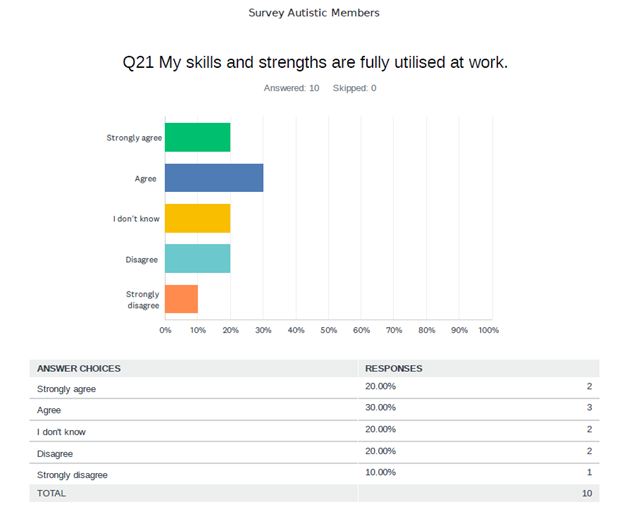
Welcome back to Taking Fair Work Forward – a learning course on emerging issues, for EIS equality rep. In this course, we wanted to link in key learning on equality issues, with current matters affecting education.
A lay of the land
A key strength of trade unions is the ability to join members’ voices together. Oftentimes, we know that the experiences of members who face inequality, are likely to be siloed or treated as individual issues by employers. When it comes to long-Covid, this may mean that the full extent of the issue is unknown, and our ability to organise around the issue, is impacted.
Last week, we looked at gathering anonymous information in meetings. Through the use of surveys, we can achieve an even fuller picture of members’ views on important topics and shed light on their experiences. Survey data can powerfully illustrate the extent of an issue, and through the use of open-ended questions, examples can provide life to quantitative data, too.
In this learning, we will consider how to create short, impactful surveys with findings that can be used in workplace organising and employer negotiations. You can create your own SurveyMonkey account and create a draft survey related to the topic of reasonable adjustments. Your fellow Fair Work Forward Equality Reps will be your participants and test out your survey, so remember to post the link on the Padlet, and respond to others’ surveys, too!
This activity is a practice to get you thinking about how to create impactful surveys that can help inform your Equality Rep role. This is just for practice, so please expect your fellow Fair Work Forward participants to answer some aspects of your draft dishonestly! We would like you to include a demographic question and we have a sample that is small and easily identifiable, so we encourage you to respond to the demographic question of others’ survey, randomly.
Consider, first of all, your purpose, in relation to reasonable adjustments, and the key objectives – what is it that you want to investigate and why? For example, if your purpose is to find out about Equality Reps’ experience of reasonable adjustments, you could ask questions related to:
Think about how you would frame your questions clearly and concisely, and how you would like to gather answers (multiple choice, open-ended, etc.).
Please move on to the Next Topic when you are done with this page – you can always return to view it again later on.
Now log into your Padlet to record your reflections, questions and notes. At the end of the week, please comment on at least one other participant’s reflections on the Padlet.
View our archived material on Fair-Work within Scotland’s education system